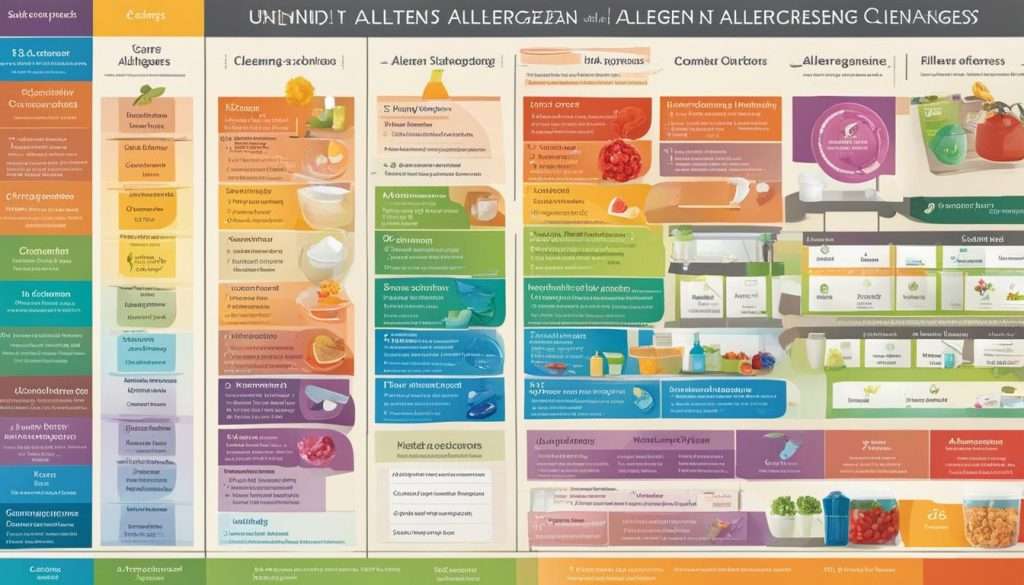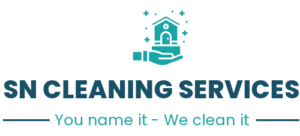The prevalence of allergies in the UK has increased significantly in the past 25 years, with up to 50% of children now having at least one diagnosed allergy. This has implications for nurseries and childcare providers, who must be equipped to handle the responsibilities and challenges that childhood allergies pose. Allergic reactions can be triggered by common allergens such as peanuts, tree nuts, milk, eggs, wheat, fish, insect stings, penicillin, pollens, and house dust mites. Severe allergic reactions, known as anaphylaxis, are rare but require immediate treatment with injectable adrenaline. It is important for childcare providers to have accurate information about children’s allergies, develop allergy management plans, and ensure proper communication with parents and healthcare professionals. Additionally, nurseries must comply with food allergen regulations and provide accurate allergen information for all meals and snacks. Best practices include proper training of staff, maintaining a nut-free policy, practicing good hygiene, and planning activities and outings that minimize the risk of allergic reactions.
Key Takeaways:
- Nurseries and childcare providers need to be equipped to handle the responsibilities and challenges posed by childhood allergies.
- Allergies can be triggered by common allergens such as peanuts, tree nuts, milk, eggs, wheat, fish, insect stings, penicillin, pollens, and house dust mites.
- Severe allergic reactions, known as anaphylaxis, require immediate treatment with injectable adrenaline.
- Childcare providers should have accurate information about children’s allergies, develop allergy management plans, and communicate effectively with parents and healthcare professionals.
- Nurseries must comply with food allergen regulations and provide accurate allergen information for all meals and snacks.
Continue reading to understand childhood allergies, developing allergy management plans, ensuring allergen-free meals and snacks, managing allergies during activities and trips, best practices for allergy management in nurseries, allergy awareness and training in early years settings, communication and collaboration with parents, and resources and support for allergy management.
Understanding Childhood Allergies
Childhood allergies are a growing concern, as more and more children are being diagnosed with allergies in the UK. These allergies occur when the immune system overreacts to harmless substances, known as allergens, perceiving them as threats. Common allergens among children include peanuts, tree nuts, milk, eggs, wheat, fish, insect stings, penicillin, pollens, and house dust mites.
Allergic reactions can manifest in different parts of the body and range from mild symptoms such as a runny nose or itchy eyes to more severe reactions like difficulty breathing and swelling. In rare cases, a severe allergic reaction known as anaphylaxis can occur, which is a medical emergency that requires immediate treatment with injectable adrenaline.
It is crucial for childcare providers to be knowledgeable about childhood allergies and their potential triggers. By understanding the common allergens and recognizing the signs of an allergic reaction, providers can create a safe environment for children with allergies and take the necessary precautions to prevent exposure to allergens.
Allergens and their Effects
| Allergen | Main Effects |
|---|---|
| Peanuts | Can cause severe reactions, including anaphylaxis |
| Milk | Can cause digestive issues and skin reactions |
| Eggs | Can cause skin reactions and respiratory symptoms |
| Wheat | Can cause digestive issues and skin reactions |
| Fish | Can cause digestive issues and skin reactions |
| Insect stings | Can cause severe reactions, including anaphylaxis |
| Penicillin | Can cause allergic reactions ranging from mild to severe |
| Pollens | Can cause respiratory symptoms and allergic rhinitis |
| House dust mites | Can cause respiratory symptoms and allergic rhinitis |
Developing an Allergy Management Plan
An allergy management plan is a crucial tool for nurseries to effectively address and handle children’s allergies. This comprehensive document outlines the specific details of each child’s allergies, emergency procedures, and necessary actions in the event of an allergic reaction. By developing an allergy management plan, nurseries can ensure the safety and well-being of all children under their care.
The allergy management plan should include essential information such as the child’s details, contact information for parents and emergency contacts, a list of specific allergies and items to avoid, a description of symptoms, prescribed medications and their administration, emergency procedures to follow, and a list of trained staff members. It is important to regularly review and update the plan to reflect any changes in the child’s allergies or emergency contact information.
Parents play a vital role in providing accurate and up-to-date information about their child’s allergies. Nursery staff must ensure that medication is safely stored and easily accessible in case of emergencies. By having a well-developed allergy management plan, nurseries can establish a reference point for all staff members to follow consistently, promoting a safe environment for children with allergies.

| Allergy Management Plan | Description |
|---|---|
| Child’s Details | Includes the child’s name, age, contact information, and any unique considerations related to their allergies. |
| Contact Information | Provides the contact details of parents, emergency contacts, and healthcare professionals for quick communication in case of an allergic reaction. |
| Allergy Information | Lists specific allergies and identifies allergens to avoid, including food items, environmental factors, and other triggers. |
| Symptoms | Details the signs and symptoms of an allergic reaction that staff members need to be aware of, ensuring prompt action if any symptoms arise. |
| Medications | Includes information about any prescribed medications, their administration instructions, and emergency medication (such as injectable adrenaline) if required. |
| Emergency Procedures | Outlines the steps to be taken in the event of an allergic reaction, including contacting emergency services and administering medication as necessary. |
| Trained Staff Members | Lists the names and roles of staff members who have received training on allergy management, ensuring that there is always someone capable of responding appropriately. |
Ensuring Allergen-Free Meals and Snacks
Early years provisions, including nurseries, must comply with food allergen regulations and provide accurate allergen information for all meals and snacks. The regulations require that information about the presence of 14 allergens, including eggs, milk, fish, peanuts, tree nuts, and gluten-containing cereals, be provided to parents, children, and staff. This information can be displayed on menus, chalkboards, or information packs, or it can be signposted to where it can be obtained.
Good practices in ensuring allergen-free meals and snacks include maintaining a nut-free policy, reading food labels diligently, practicing good hygiene, and having a list of special dietary requirements for each child. Effective communication with parents and staff is crucial in managing allergies related to food.
Below is a table summarizing the key points to consider when providing allergen-free meals and snacks in nurseries:
| Key Points | Explanation |
|---|---|
| Maintain a nut-free policy | By enforcing a nut-free policy, the risk of allergen contamination can be minimized. |
| Read food labels diligently | Thoroughly checking food labels ensures that allergen-containing ingredients are identified and avoided. |
| Practice good hygiene | Regular handwashing, clean food preparation areas, and proper storage of food help prevent cross-contamination. |
| Have a list of special dietary requirements | Keeping a comprehensive list of each child’s dietary needs allows for personalized meal planning. |

Managing Allergies During Activities and Trips
Allergies can present unique challenges during activities and trips in early years settings. Childcare providers must ensure the safety of all children, including those with allergies, while still providing engaging and inclusive experiences. By implementing proper management strategies, staff can create a safe environment that minimizes the risk of allergic reactions.
Managing Craft Activities and Materials
Craft activities can be a potential source of allergens, especially when using materials such as glue, paint, and other substances. To manage allergies effectively, childcare providers should identify known allergens in craft materials and choose alternatives or provide suitable accommodations for children with allergies. It is important to communicate with parents about specific allergens and ensure that appropriate precautions are taken. By doing so, all children can participate in craft activities safely and without the risk of an allergic reaction.
Considerations for Cooking Activities and Outings
During cooking activities and outings, it is crucial to pay attention to food allergens and cross-contamination. Childcare providers should have a clear understanding of each child’s specific allergies and dietary requirements, ensuring that appropriate substitutes or alternatives are available. When planning outings, consider the availability of allergen-free options and communicate with parents to ensure the safety and inclusion of children with allergies. By being proactive and prepared, activities and trips can be enjoyable experiences for all children.
Creating an Allergy Management Plan for Outings
When organizing trips, childcare providers should develop an allergy management plan that includes the necessary precautions and emergency procedures. This plan should outline the child’s specific allergies, medications, and steps to be taken in case of an allergic reaction. It is important to ensure that staff members are trained in administering medication and are familiar with the child’s allergy management plan. By having a comprehensive plan in place, childcare providers can confidently manage allergies during outings and ensure the well-being of all children.

| Management Strategies | Benefits |
|---|---|
| Identify and avoid known allergens in craft materials | Minimizes the risk of allergic reactions during craft activities |
| Communicate with parents about specific allergens and accommodations | Ensures the inclusion and safety of all children |
| Understand each child’s allergies and dietary requirements during cooking activities | Provides appropriate alternatives and substitutes for children with allergies |
| Develop an allergy management plan for outings | Ensures preparedness and appropriate response in case of allergic reactions |
Allergy Management Policies and Best Practices in Nurseries
Proper allergy management in nurseries requires the implementation of comprehensive policies and best practices. These measures ensure the safety and well-being of children with allergies and create a supportive environment for their growth and development. Key components of effective allergy management policies include staff training, nut-free policies, and clear communication with families.
Staff training is essential to equip nursery staff with the knowledge and skills necessary to prevent and respond to allergic reactions. Training programs should cover allergen avoidance strategies, crisis management, and the administration of medication, such as adrenaline auto-injectors. By investing in staff training, nurseries can ensure a prompt and appropriate response in case of emergencies.
Nut-free policies play a crucial role in preventing allergic reactions in nurseries. These policies require that all food and snacks provided within the nursery premises are free from nuts and nut products. By maintaining a nut-free environment, nurseries can create a safe space for children with nut allergies and reduce the risk of accidental exposure.
Clear communication with families is essential for effective allergy management. Nurseries should establish open lines of communication with parents to gather accurate information about children’s allergies, update allergy management plans, and address any concerns or questions. Regularly sharing information about allergen-free meals, activities, and outings helps parents feel confident in their child’s safety while at the nursery.
| Allergy Management Policies | Staff Training | Nut-Free Policies | Communication with Families |
|---|---|---|---|
| Develop comprehensive policies and procedures | Train staff on allergen avoidance and crisis management | Maintain a nut-free environment within the nursery | Establish open lines of communication with parents |
| Regularly review and update policies | Ensure staff is trained in administering medication | Read food labels diligently to avoid cross-contamination | Share information about allergen-free meals and snacks |
| Comply with food allergen regulations | Stay informed about the latest allergy management guidelines | Incorporate nut-free policies into meal planning and preparation | Address parent concerns and questions promptly |
By implementing these best practices and policies, nurseries can create a safe and inclusive environment for children with allergies. The commitment to proper allergy management ensures that every child can thrive in their early years, free from the fear of allergic reactions and with the support they need to reach their full potential.
Allergy Awareness and Training in Early Years Settings
Effective allergy management in early years settings requires a high level of allergy awareness and proper staff training. Childcare providers should prioritize allergy education to ensure the safety and well-being of children with allergies. Allergy management courses, such as AllergyWise® for Early Years Settings, offer comprehensive training on recognizing allergic reactions, managing anaphylaxis, administering adrenaline auto-injectors, and practical tips for managing young children with allergies. These courses provide essential knowledge and skills to handle allergy-related emergencies confidently.
In addition to specific allergy training, early years staff should also receive regular training on food hygiene and safety. This ensures that they have a good understanding of proper hygiene practices and can prevent cross-contamination or accidental exposure to allergens. By staying informed and trained in food safety protocols, childcare providers can minimize the risk of allergic reactions and create a safe environment for all children under their care.
Furthermore, ongoing allergy awareness within the early years setting is crucial. Staff should remain updated on the latest research and developments in allergy management, as well as any changes to food allergen regulations. Regular staff meetings and discussions can help ensure that everyone is aware of the specific allergies and individual needs of the children in their care. Communication channels should be open, allowing staff to ask questions, share concerns, and address any issues related to allergies in a timely and effective manner.
Allergy Awareness and Training Tips:
- Invest in accredited allergy management courses, such as AllergyWise® for Early Years Settings.
- Ensure all staff receive regular training on food hygiene and safety.
- Encourage ongoing allergy awareness through staff meetings and discussions.
- Create open communication channels for staff to address allergy-related concerns.
Allergy Management Courses: Key Benefits
| Benefits | Explanation |
|---|---|
| Increased Confidence | Staff gain the knowledge and skills needed to manage allergic reactions and emergencies, boosting their confidence in handling allergy-related incidents. |
| Improved Safety | Proper training ensures the safety of children with allergies by reducing the risk of accidental exposure to allergens and enabling prompt and effective management of allergic reactions. |
| Enhanced Collaboration | Allergy management courses promote collaboration among staff, parents, and healthcare professionals, facilitating better communication and cooperation in managing allergies. |
| Up-to-Date Knowledge | Courses keep staff informed about the latest research, best practices, and regulatory changes in allergy management, ensuring that their knowledge is current and relevant. |
Communication and Collaboration with Parents
Effective communication with parents is crucial for the successful management of allergies in early years settings. It is important to establish open lines of communication and create a collaborative partnership with parents to ensure the safety and well-being of children with allergies. By working together, childcare providers and parents can exchange vital allergy information, address concerns, and develop comprehensive allergy management plans.
Regular communication with parents allows for the sharing of up-to-date allergy information, including any changes in allergies or prescribed medications. This information is essential for creating a safe environment and implementing appropriate measures to prevent allergic reactions. Additionally, parents can provide valuable insights into their child’s specific needs and preferences, enabling childcare providers to tailor their approach accordingly.
Platforms like Blossom Educational Software can enhance communication by providing daily diaries and allergy information for each child. These tools facilitate real-time updates and allow parents to provide valuable feedback on their child’s well-being and any concerns related to allergies or dietary requirements. By utilizing such resources, childcare providers can ensure that allergy information is promptly and accurately shared, promoting a collaborative and supportive relationship with parents.
| Benefits of Effective Communication with Parents |
|---|
| 1. Exchange vital allergy information |
| 2. Address concerns and preferences |
| 3. Develop comprehensive allergy management plans |
| 4. Tailor approach to individual child’s needs |
| 5. Promptly share updated allergy information |
| 6. Enhance collaboration and partnership |
Furthermore, it is essential to provide parents with access to allergy awareness resources. These resources can help educate parents about allergies, provide guidance on managing allergies at home, and offer support in navigating potential challenges. By equipping parents with the necessary knowledge and resources, childcare providers empower them to play an active role in their child’s allergy management.
Open and transparent communication with parents is key to building trust and ensuring the effective management of allergies in early years settings. By creating a collaborative partnership, sharing up-to-date information, and utilizing available resources, childcare providers can create a safe and inclusive environment for all children, including those with allergies.
Resources and Support for Allergy Management
Managing allergies in early years settings can be challenging, but there are various resources and support available to assist in this important task. One key resource is the use of risk assessment templates, which help identify and manage the risks associated with allergies. By conducting thorough risk assessments, childcare providers can implement appropriate measures to prevent and respond to allergic reactions effectively.
An essential tool in allergy management is the allergy action plan. Organizations like the British Society for Allergy and Clinical Immunology provide comprehensive allergy action plans that outline the necessary steps to take in case of an allergic reaction. These plans are valuable resources for early years settings, as they ensure that staff are prepared to handle emergencies and provide the necessary care to children with allergies.
Having a model policy for allergy management is another crucial resource for nurseries and childcare providers. A model policy serves as a guiding document that outlines best practices and procedures for managing allergies. It provides a framework for staff training, communication with parents and healthcare professionals, and the implementation of effective measures to prevent allergic reactions.
Staying up-to-date with national guidelines and standards for allergy management is also vital. These guidelines offer valuable insights and recommendations for creating a safe and inclusive environment for children with allergies. By regularly reviewing national guidelines and implementing the suggested practices, early years providers can ensure that their allergy management strategies are in line with the latest industry standards.
